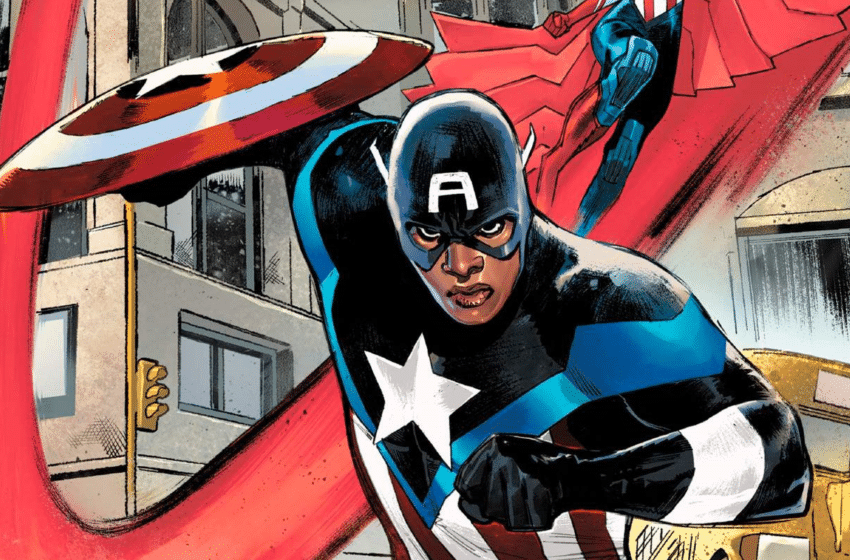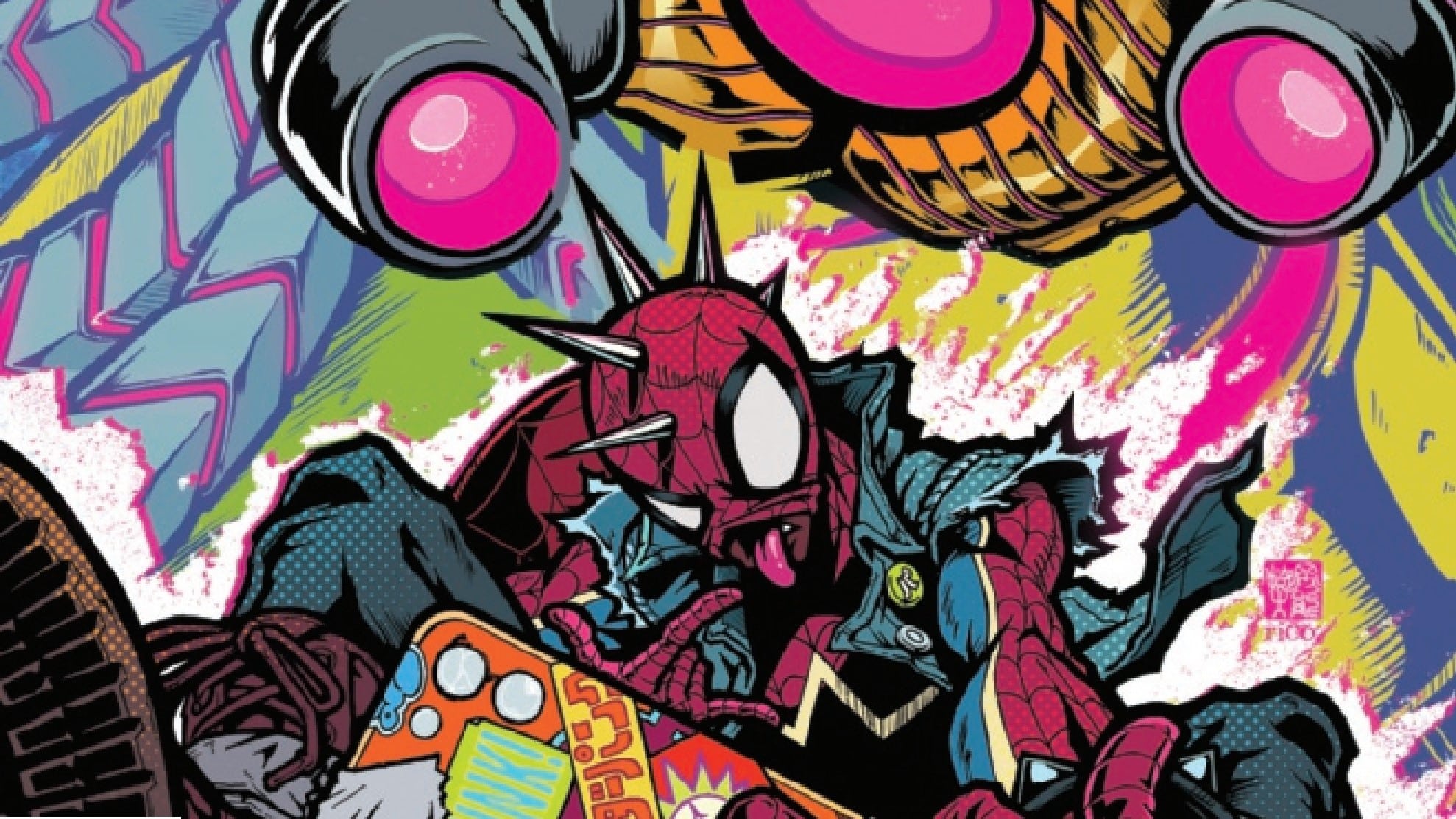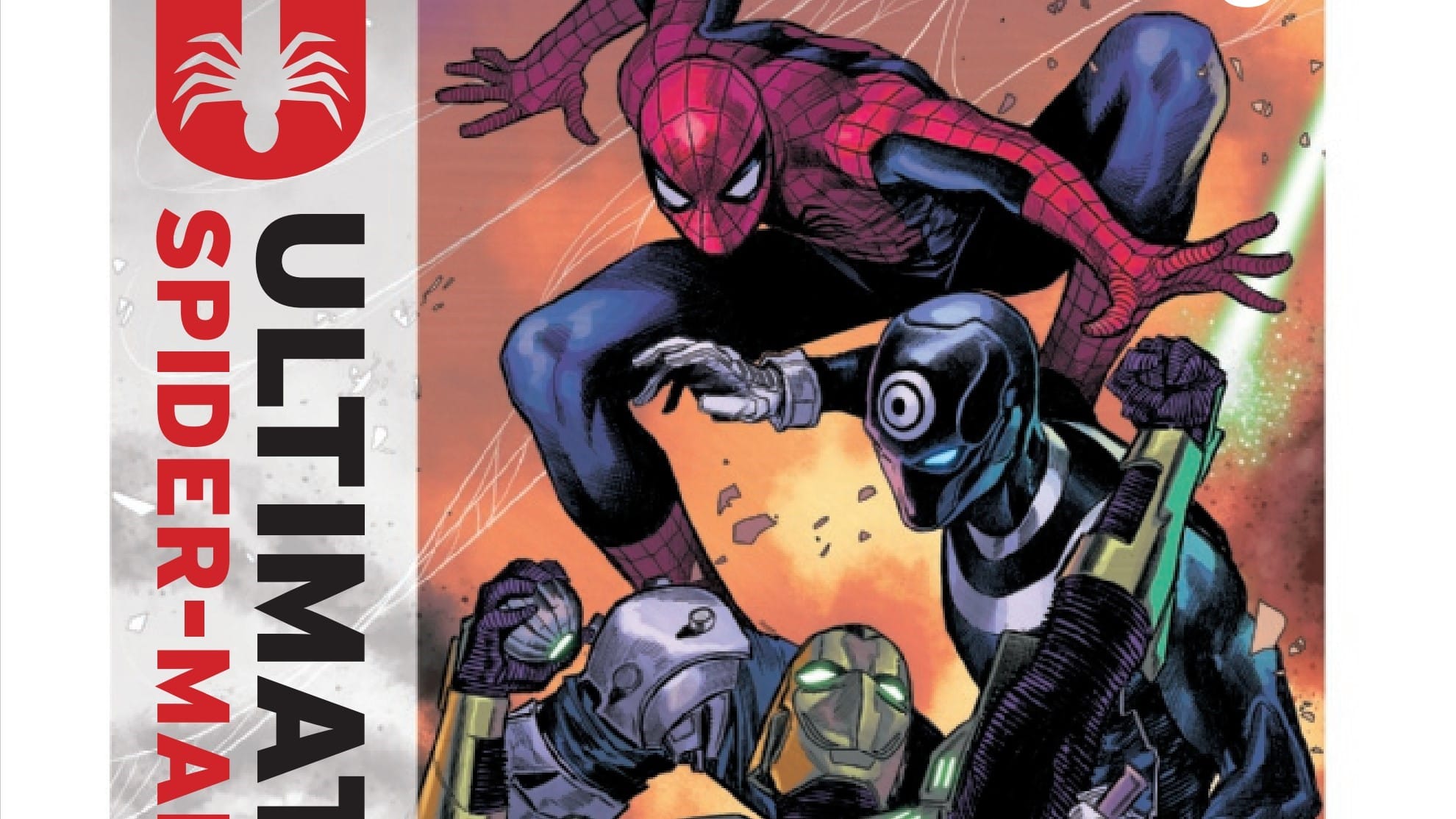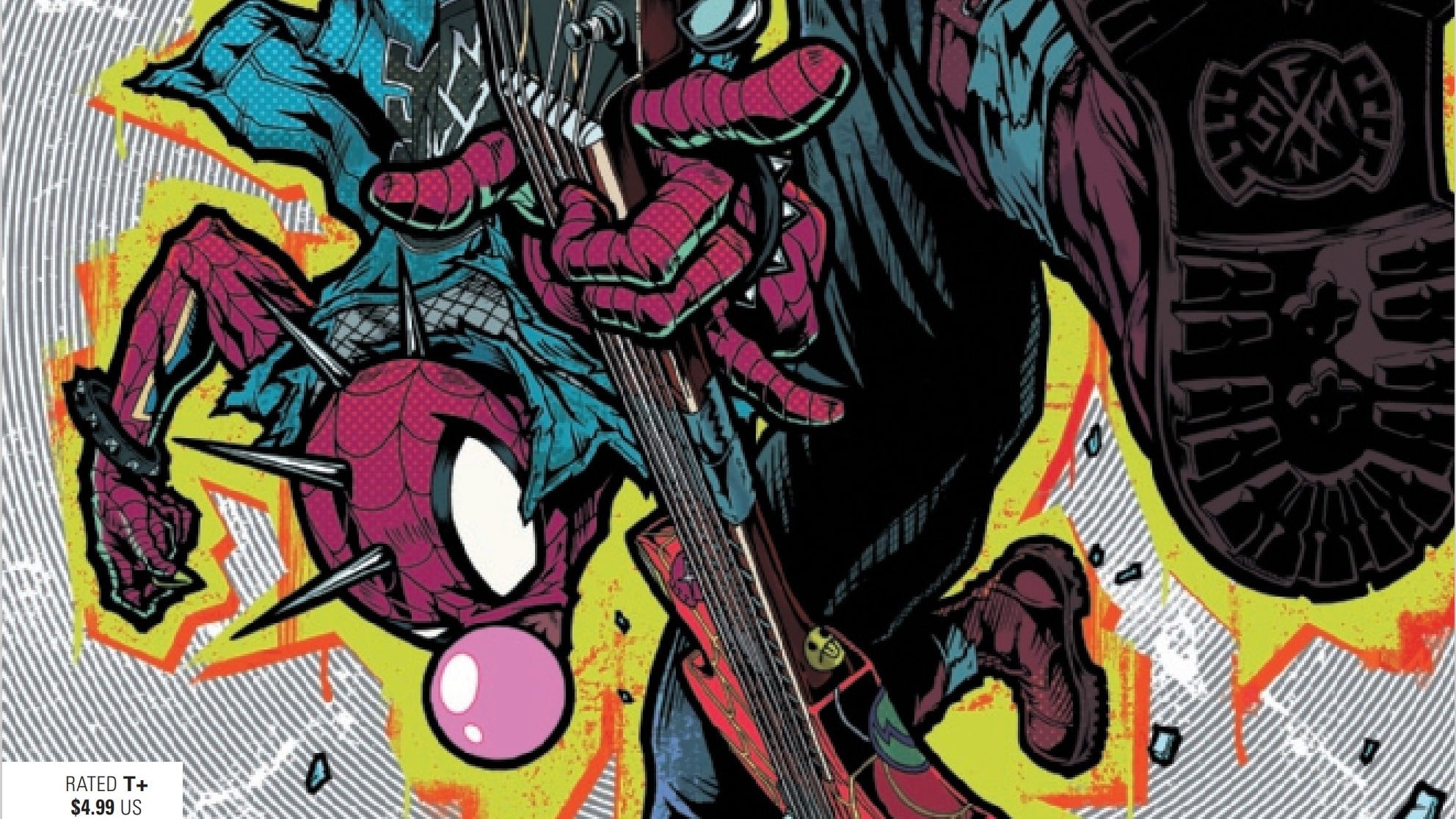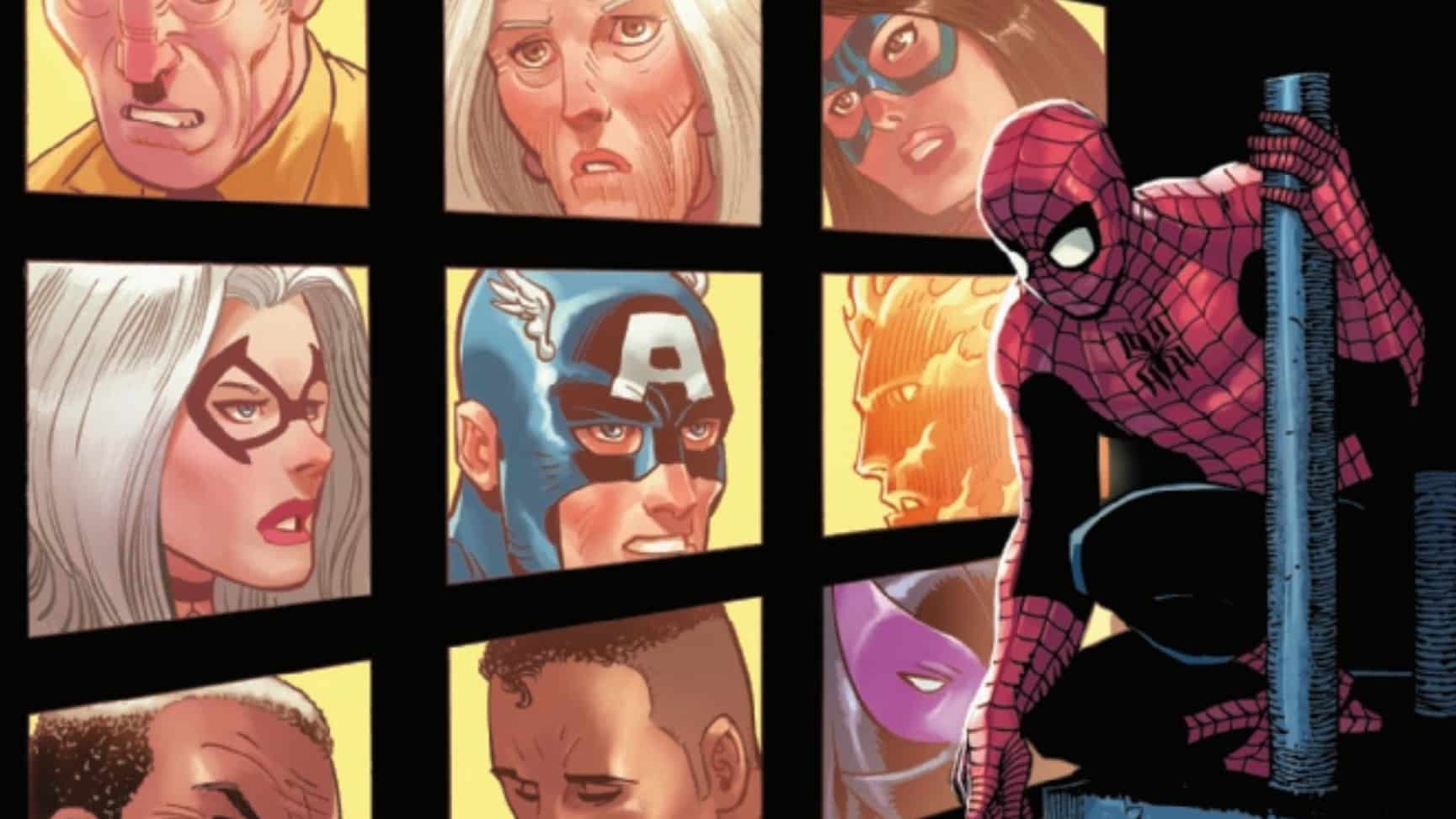A lot of people will tell you that Miles Morales has a branding problem.
Depending on who you ask — or, more likely, who’s offering you their unsolicited opinion — there are two trains of thought that’ll lead to that conclusion. The first, typically loudest, is that Miles is held back by being a legacy character, and sharing a name with his predecessor. They’ll suggest plenty of alternatives, of course: Night Spider, Spiderling, anything short of Arachnigga that they can think of to reiterate the fact that he’s not Spider-Man, and should really just relinquish the title to his betters. They’ll point to the numerous shows that have done just that, your Spy-D’s, your Kid Arachnids, even the Spin proudly displayed on my four-year-old’s second favorite hoodie. It’s just too confusing, they’ll say, purposefully ignoring the irony as they line up for Ben Reilly or Otto Octavius. You can’t have two Spider-Men, and, well, Pete was here first.
On the other hand, you have the people who argue that the transition from the Ultimate Universe to mainline Marvel meant that Miles is doomed to play second fiddle, a position that is drastically removed from his original context. Ever since Secret Wars, he’s been Spider-Man with an asterisk, while Marvel did their best to have their cake and eat it too. Sure, they made a big media fuss about how he was headlining the book called Spider-Man, and how that showcased their commitment to diversity, but conveniently forgot to mention that the line would still center around Amazing. Meanwhile, he has a different name in every show he shows up in, and even successful adaptations like Into the Spider-Verse or the PlayStation game twist his story until he’s a supporting character in Peter Parker’s life. And, as if that’s not enough, the MCU’s version of Spider-Man has folded in enough of Miles’s background that seeing him take the lead in live-action anytime soon is unlikely at best. It’s not that Miles shouldn’t be Spider-Man, it’s that he doesn’t get to be. His entire existence, ever since he smuggled a cheeseburger past the end of the world, has come with addendums. He’s The Black Spider-Man, The Black Legacy Sidekick, following in the footsteps of Jim Rhodes and Sam Wilson, and never allowed to break out from under a shadow that he avoided for the first four years of his existence.
Personally, I fall pretty firmly into that second category. Miles is a strong character, and his original runs in the Ultimate Universe were hit after hit. In his original context, he took the mantle after the death of his universe’s Spider-Man, and made it his own — he wasn’t a sidekick, he wasn’t “Miles Morales Colon Spider-Man,” he was Spider-Man. He earned that name over the years, in and out of universe, and it’s hard to replicate that when he’s pulled wholesale into a universe where Pete’s still in the webs. Since then, especially after Bendis left, most of his best work has been in Champions, while his own title has been a non-stop series of regurgitation. I tapped out of his Saladin Ahmed-penned solo right around the time it wrapped up yet another story about Uncle Aaron dying, and announced that Miles would be getting his own Clone Saga, in yet another rehash of Peter’s story. The kid’s been around for a decade, it’s too soon to keep retelling the same stories, and he’s never going to progress if he’s just slapping stilted AAVE and a bad fade on top of other people’s stories.
So, I admit, I was immensely skeptical when the What If… Miles Morales miniseries was announced. On the surface, it’s emblematic of everything I hate about the character’s treatment, placing him as an interchangeable Afro-Latino legacy for heroes like Hulk and Wolverine. It didn’t help that the first issue would have him take the role of Captain America, with all the baggage that entails. It hasn’t even been a full year since The Falcon and the Winter Soldier graced our screens, and the resulting discourse graced our timeline, after all. At the risk of relitigating all of that, a Black Captain America carries an entirely different connotation than a brother in a spider suit, even if his traditional powers stemmed from an attempt to recreate the super-soldier serum. American history, and America as a concept, is inextricably, fundamentally linked with the history of Black oppression, and you’re not likely to see the sort of introspection that deserves in a single 33-page issue.
So, with all of that on the table, I genuinely wasn’t expecting this issue to work anywhere near as well as it did. Cody Ziglar, one of the embarrassingly small number of Black people to write Miles over his decade of existence, does truly amazing work with an iffy concept, and his take on the universe is a genuinely fun experience. The flipped roles go beyond Miles as Cap, giving us gems like Tiana Toomes as the Falcon, Sam Wilson in Nick Fury’s role, and a spectacularly ashy Tombstone taking the place of the Red Skull. Despite having a whole history condensed down to one issue, there’s a lot of there there, and the world feels lived in. We’ve all read half-assed Elseworlds, but in staying true to the hearts of the characters, Ziglar manages to overcome many of the pitfalls that they can run into.
Ziglar’s dialogue is a definite high point of the issue — it’s refreshing to read dialogue that isn’t just someone’s approximation of what they think Black people sound like. Each character has their own unique voice, that manages to ring true to the traditional incarnations of the characters, with special mention going to his take on Aaron. Ziglar even nicely sidesteps worries about Miles being The Black Sidekick by echoing his Ultimate universe origin as Spider-Man, inspired by the deeds of a deceased hero who came before. Paco Medina’s pencils are always great to look at, and while the inks (Walden Wong, Victor Olazaba, and Sean Parsons) were slightly inconsistent at times, Chris Sotomayor’s colors elevated the book to the next level. From the cover, I expected an aged-up Miles, but he seems to be roughly the same age as he is in the main continuity. It’s not uncommon to see teens in general, and Black teens specifically, look like they’ve suddenly aged ten years depending on the panel, so the fact that Cap was still visibly Miles throughout the issue was a pleasant surprise.
Honestly, this book shouldn’t work, let alone anywhere near as well as it did. I still have reservations about the concept and the remaining issues, but the creative teams in play can’t be held responsible for the way Marvel has treated Miles over the years. Despite my predilection for hatin’, this was a damn good issue, and you can be damn sure I’ll be checking in next month to see John Ridley and Farid Karami’s take on Miles as Wolverine.

Corey Smith
Corey Smith is probably tired right now. He's definitely trying not to think about everything he has to write! When he's not staring at a blank word document, odds are he's tweeting, playing Pokémon, or wondering how he ended up with such a smart-ass kid.

